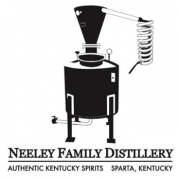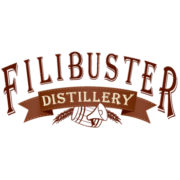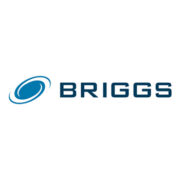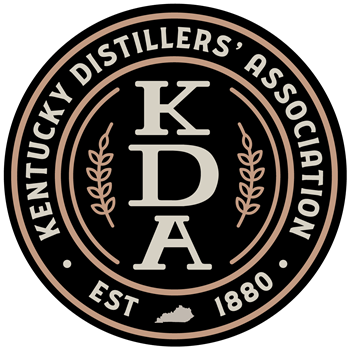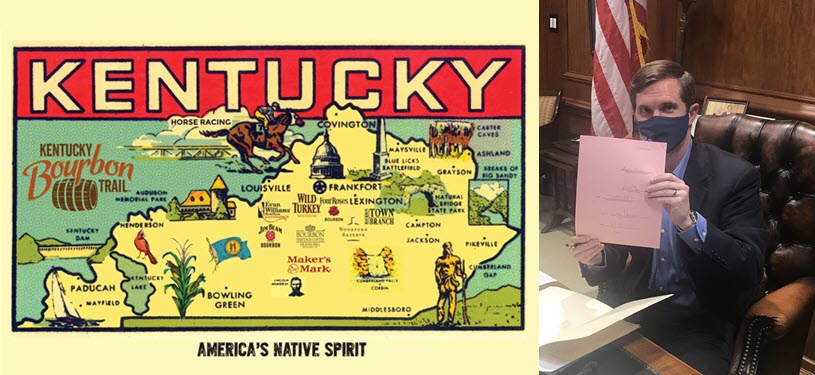
Kentucky is home to nearly 10 million barrels of aging distilled spirits. 94% of those barrels are filled with America’s Native Spirit – bourbon. No one really knows what’s in those other barrels, well, someone does but that’s a different story.
Prior to Prohibition there were literally thousands of distilleries in many of the eastern United States. When the 18th Amendment went into effect only a small number of distilleries were allowed to ‘legally’ sell spirits for medicinal purposes and for a limited time produce distilled spirits. Over the decade plus of Prohibition most distilleries were dismantled for scrap or dismantled and reassembled in Canada where distilling was still legal. Once the 21st Amendment passed Kentucky emerged as the epicenter of distillation in the United States. Today, distilling is legally happening in every state in the U.S.
The reason we are discussing the history is because when it comes to distilling most states have some sort of distilled spirits association or guild. They vary from groups that meet occasionally and are all volunteer to one’s that meet on a regular schedule and work to lead and move the industry forward.
In the case of the Kentucky Distillers’ Association (KDA), founded in 1880, it is the leading state run Association in the U.S. with several full-time employees. Historically they have represented the large heritage distilleries but over the past decade they have grown their craft distillery membership. Several of the Western states have more distilleries but no other state produces the overall volume of spirits. If you want to know how many distilleries are in each state, visit our Distillery Directory to get the details.
Though the world may have slowed in 2020 and 2021 because of the horrific Covid-19 pandemic, the KDA has been busy working with distillers and state legislatures to move many archaic distilling laws forward. Kentucky has recently passed several laws that will affect the state and will hopefully help other states to follow suit.
Kentucky Gov. Signs HB 415 ‘An Act Relating to Alcoholic Beverages’
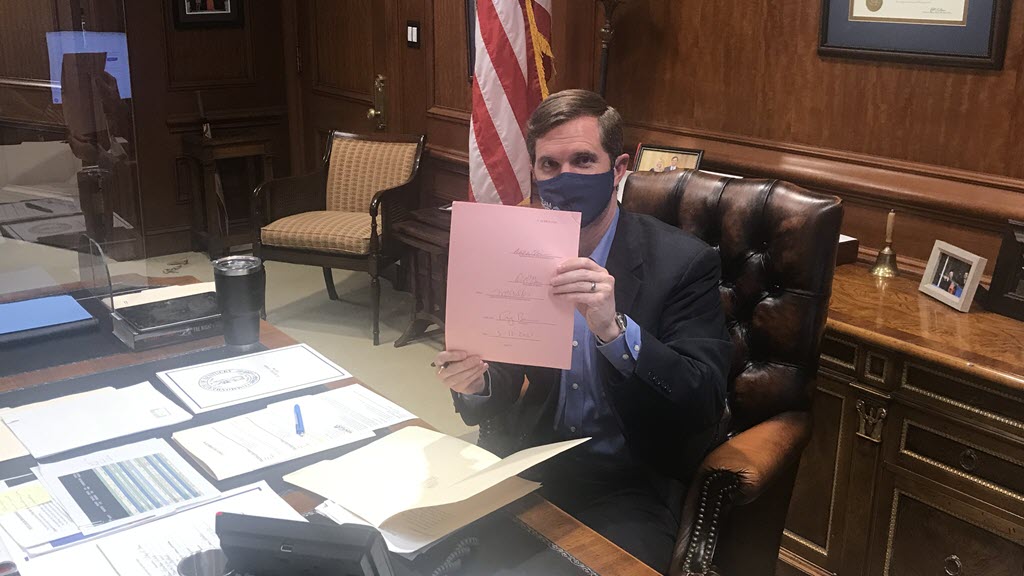
The world has changed a lot since the laws governing distilled spirits were written after the signing of the 21st Amendment in the 30s. Keep in mind when those rules were written only 35% of homes had telephones and Al Gore had not invented the internet yet. The laws governing distilled spirits are changing but at best it’s at the pace of a gastropod mollusk, in other words a snail, the world’s slowest moving animal.
In 2020 Kentucky approved House Bill 415 that made it legal to sell beer, wine and spirits by phone or online and ship in state and to 10 reciprocal states plus D.C. Even after signing the bill into law it took another six months to write the rules that allowed distillers to sell and ship spirits while following the law without fear of losing their distillers license. Part of this years HB 415 (they just happened to be assigned the same bill number) clarifies parts of last years law.
Distillery Visitor Center Bottle Sales Bypass 3 Tier System
The three tier system is complicated. This new law modifies the paperwork flow of spirits and allows distillers to sell direct to consumers in their distillery visitor center or gift shop without any involvement from a wholesaler.
The way the law works today is when a bottle of spirits moves from a bonded warehouse there is a paper trail created that shows the bottle went from the distillery, to the wholesaler and then back to the distillery where it can be sold. During that process the wholesaler pays the various state and local taxes and collects a commission for the process. Keep in mind, the bottle went from one room in the distiller to another and never left the building.
The new law changes the process so when the bottle moves from bond to the visitor center it is now up to the distiller to create the paper trail and pay all excise, wholesale, sales and applicable local regulatory license fees. By cutting out the middle man distillers are able to keep more revenue from each bottle sold at the distillery. This includes sealed bottles sold at retail, samples served to visitors, bottles shipped via common carrier and spirits used to make cocktails at their bar or restaurant.
Kentucky Distillers’ Association’s President Eric Gregory explained that, “Beer got this privilege in 2018. In their gift shops and their tap rooms they are allowed to collect and remit the wholesale and excise taxes to the state. They have a similar structure as we do where in your gift shop, you take a bottle from your bottling line and you bring it to your gift shop for sale. You had to create a paper transaction to where it went through the wholesale tier making it a three tier sale. Even though the wholesaler never touched the bottle. This removes that so it gives us parity with beer. The distillery will collect the taxes and remit those to the state and the wholesaler will not get a fee for the sale since they never actually touched or took physical possession of the bottle.”
Needless to say in conversations with distillers they are thrilled with the change in this law and the effect it will have on their bottom line.
This part of the law takes effect January 1, 2022.
Stay Informed: Sign up here for the Distillery Trail free email newsletter and be the first to get all the latest news, trends, job listings and events in your inbox.
Direct to Consumer Shipping via Third Parties
HB 415 allows distillers to work with third party sources to fulfill orders that were taken over the phone or online.
Gregory said the way the law was written in 2020 wineries, breweries and distilleries were required to ship from its licensed location. The new law tweaks that and allows a distillery to work with a third party fulfillment house to ship spirits.
“This (DTC) model is used a lot by wineries that can ship to 46 states and they’ve been doing it for 50 years,” said Gregory. “We’ll get there eventually. A lot of this was driven by the wine institute and the wineries. The way the bill was written last year if you are a winery outside of Kentucky and you use a fulfillment center you could not ship into Kentucky. So it was mainly done for wineries. Now, as more reciprocal states come online for bourbon, whiskey and other spirits I’m sure that the larger distilleries in particular will look to fulfillment houses to help them make a more efficient process for consumers.”
This will most likely affect the larger heritage distillers that do a much higher volume of sales. Its likely most craft distillers will continue to do their fulfillment in-house but all distillers have the option to outsource DTC fulfillment.
According to Mark Shilling of Shilling Crafted and past President of the American Craft Spirits Association at least 15 states have some type of DTC related activity happening. The list includes the following states.
| Arkansas | Kentucky | New York |
| California | Louisiana | Ohio |
| Colorado | Maryland | Texas |
| Delaware | Nevada | Utah |
| Hawaii | New Mexico | Virginia |
Direct to Media, Marketing & Competition Spirits Samples
It’s been a long standing practice for distilleries to send sample bottles to media, marketing and business partners to help spread the word via social media and blogs about new spirits releases. The new law buttons up a gray area that now makes this practice is legal, albeit with some new restrictions.
“The long standing practice of shipping samples to the media, marketing and business partners has been clarified,” said Gregory. “Every alcohol producer has been doing that for decades. When the DTC issue started a couple years ago we started getting questions about ‘everybody is doing this, how is this possible since its not an in-person transaction happening at the distillery?’ We explained this is a long standing practice. Let’s just put in Kentucky law to make sure this is legal. This was one of those grey areas.”
The other thing this laws does is to open up Kentucky for competitions or contests. Samples may now be shipped for “Distilled spirits, wine, or malt beverage competitions or contests”.
Shipments are limited to 1 liter per calendar year of any particular product. Bottles must be marked “Samples-Not for Sale”.
The right to use third parties for shipping and sending samples are effective immediately.
“We are extremely thankful to the General Assembly for passing this key update to last year’s bold reforms that will keep Kentucky at the forefront of spirits shipping to meet increasing consumer demand and strengthen our rightful title as the one, true, authentic home for Bourbon,” Gregory said.
And on a side note, even the Kentucky Distillers’ Association was dissolved during Prohibition. It wasn’t until 1935 when the association was reborn and the distillers got the band back together.
Please help to support Distillery Trail. Sign up for our Newsletter, like us on Facebook and follow us on Instagram and Twitter.


